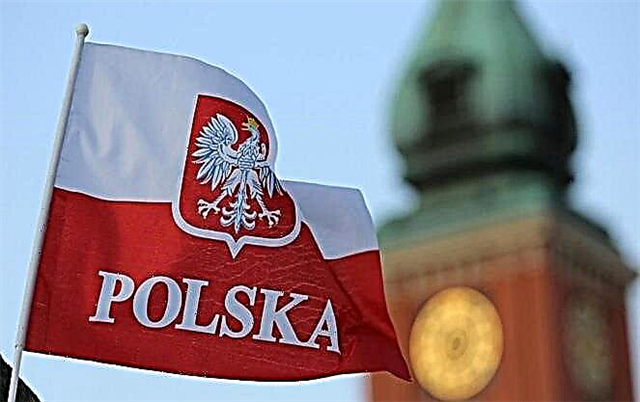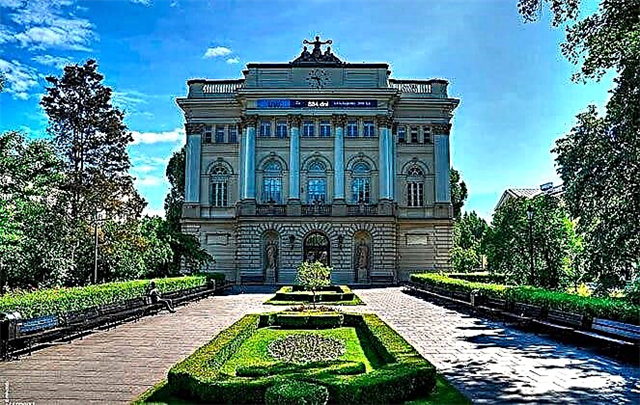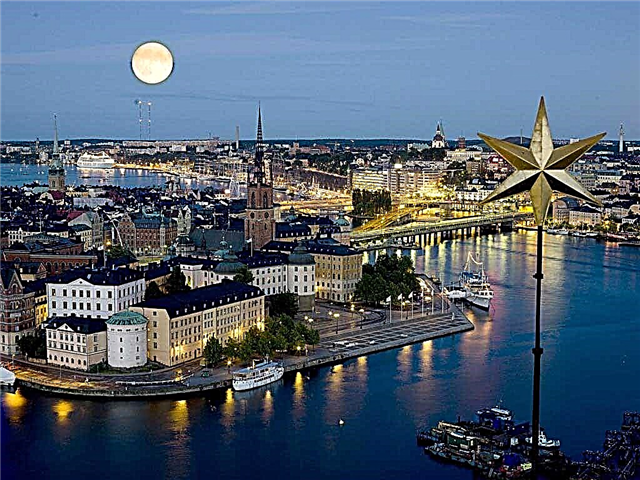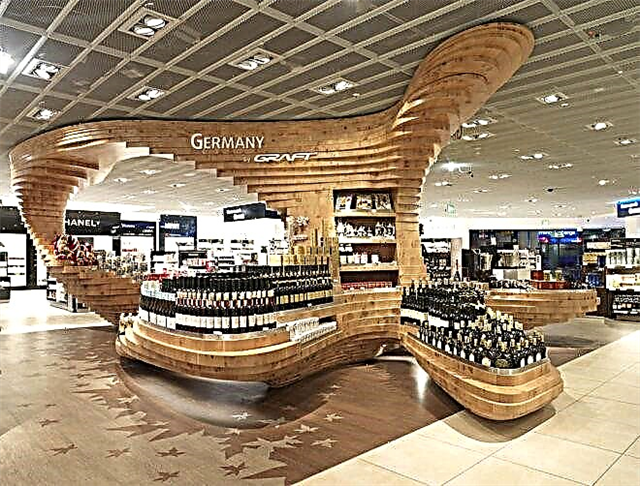Greece is one of the most visited countries in the world by tourists. According to statistics, about 17 million travelers come here annually. When going on a trip, it is important to form a budget correctly. Therefore, it is relevant information about what prices in Greece in 2021 for the most demanded goods and services.

Estimated budget of the average Greek
The minimum wage in the country in 2021 is fixed at 586 euros per month. Loaders, drivers, nannies, waiters receive approximately the same amount. Architects, programmers, accountants, managers earn between 700 and 1,100 euros per month. This is the average wage in the state.
Since February 1, the minimum wage in the country has increased to 650 euros per month.
The maximum salary in Greece ranges from 3,000 to 5,000 euros per month. Doctors, lawyers, pilots, employees of banking institutions can count on this amount.
The average Greek family of three spends about 27% of the monthly income on utility bills and health insurance. From 15 to 25% of the wealth goes to food. Up to 50% of the money earned remains for other needs.
Average cost of food
Food for every traveler is an important item of expenditure. Food prices in Greece vary from store to store. For example, AB Vasilopoulos supermarkets are among the most expensive establishments. But their advantage lies in an extremely wide range of quality products.
The Sklavenitis supermarket chain has more affordable prices. There are also a large number of economy class stores in the country.
Consider what prices in Greece are valid for products in 2021. So, on average, you will have to pay for:
- 1 liter of milk - 1-1.5 euros;
- 1 kg of rice - 1-3 euros;
- 1 loaf of white bread weighing 0.5 kg - 0.7-1 euro;
- 12 eggs - 2-4 euros;
- 1 kg of hard cheese - 6-10 euros;
- 1 kg of chicken fillet - 4.5-8 euros;
- 1 kg of beef tenderloin - 7-10 euros;
- 1 bottle of water with a volume of 1.5 liters - 0.3-1 euro;
- 1 bottle of wine - 5-9 euros;
- 0.5 l of local beer - 0.8-2 euros;
- 0.5 l of olive oil - 3-5 euros.
Now about how much fruits cost in Greece and what are the average prices for vegetables. So:
- 1 kg of potatoes - 0.5-1 euros;
- 1 kg of onion - 0.5-1 euro;
- 1 kg tomato - 0.8-2 euros;
- salad - 0.5-1 euros;
- 1 kg of oranges - 0.6-1.5 euros;
- 1 kg of apples - 1-2 euros;
- 1 kg of bananas - 1.1-2 euros.
It is more profitable to go to the markets for alcohol, fresh meat, fish, seasonal fruits, berries and vegetables. There, their cost is lower than in supermarkets.
Markets are open from morning until lunchtime, in big cities - every day, in small ones only on certain days.
Food prices in Greece in the markets in resort areas, on the contrary, are higher than in stores. But the markets are open until late at night, and some even around the clock, when the supermarkets are already closed.
If during the trip there is no desire to cook food on your own, you can give preference to catering establishments.
 The most expensive are restaurants. Here you can try national dishes, for example, pastizio (casserole with pasta and minced meat with béchamel sauce and cheese), spanakopita (pie stuffed with feta cheese and spinach), lukanica horjatika (homemade sausages stewed with vegetables) and others.
The most expensive are restaurants. Here you can try national dishes, for example, pastizio (casserole with pasta and minced meat with béchamel sauce and cheese), spanakopita (pie stuffed with feta cheese and spinach), lukanica horjatika (homemade sausages stewed with vegetables) and others.
For tourists, prices are quite affordable in the restaurants of Crete Corinna Star and Erganos, in the taverns of Rhodes To Limeri Tou Listi and Artemida. The approximate cost of the dishes here is as follows:
- Greek salad - 4-8 euros;
- assorted seafood - 15-40 euros;
- meat dishes - 8-15 euros;
- moussaka - 4-8 euros;
- a cup of cappuccino - 2-3.5 euros;
- a glass of juice - 1-2 euros;
- a glass of beer - 3-5 euros.
We answer a common question about how much a lunch costs in Greece: in an inexpensive restaurant, an order of three courses for two will cost an average of 8-15 euros, and in a middle-class restaurant - 25-42 euros.
In small cafes that are located away from the sea coast and famous attractions, food is more budgetary. Here you can have breakfast for only 2-5 euros, lunch - 5-10 euros, dinner - 6-15 euros. Thus, the price for food in a cafe in Greece is lower the further the establishment is from the tourist routes.
Fast food and street food are considered the most affordable. You can buy gyros, a flatbread with minced meat, vegetables, fries and sauce, on almost every corner in Greece. It costs an average of 1.5-2 euros.
A visit to McDonald's is recommended for those travelers looking for a place to eat inexpensively in Athens and other Greek cities. The classic menu here will cost from 5 to 7 euros.
Those who travel with children should think about their nutrition. Some products that are familiar to residents of the CIS countries (for example, cereals of a certain manufacturer) are not easy to buy in Greece. Therefore, it is better to bring them with you.
On the shelves of local supermarkets, you can find a wide range of powdered and concentrated milk, yoghurt, dairy desserts. So, 1 liter of goat's milk costs 2 to 3 euros. And the prices for food in Greece for children in the form of yoghurts without fillers vary in the range from 1 to 1.5 euros (average volume 200-300 ml).
Travelers who prefer to eat in restaurants and cafes can choose places that offer a children's menu. If it is absent, you can ask to cook boiled meat, fish, steamed vegetables, light soup for the child.
Housing rates
Both for tourists and for foreigners moving for permanent residence to the territory of a sunny country, the question of whether housing is expensive in Greece does not lose its relevance.
- So, renting a one-room apartment in the city center in 2021 ranges from 280 to 400 euros per month, outside the center - from 180 to 330 euros per month.
- For a rented three-room apartment in the center, you will have to pay from 400 to 900 euros per month, far from the center - from 300 to 600 euros.
Utility bills in Greece for an apartment of about 85 m2 are in different cities from 85 to 250 euros per month. This amount includes electricity, heating, water supply, garbage disposal.
In case of purchasing housing, the cost of 1 m2 in the city center will be from 1,000 to 2,000 euros, outside the center - from 800 to 2,000 euros.
Transportation costs
 Public transport costs an average of 1-1.4 euros. Those who regularly use it are advised to purchase a monthly pass. Its cost is about 35 euros.
Public transport costs an average of 1-1.4 euros. Those who regularly use it are advised to purchase a monthly pass. Its cost is about 35 euros.
Taxi fares range from € 0.68 to € 1.2 per km. For 1 hour of waiting in different cities, customers will have to pay from 8 to 15 euros.
Those who prefer to use personal transport are interested in the cost of fuel in Greece and car rental. For a rented car, you will have to pay 40-70 euros per day. In this case, you need to pay and value added tax (from 13 to 23%). If you wish, you can take out insurance, the price of which is from 10 to 15 euros per person per day.
There are toll roads in the country. For example, traveling on the Athens-Thessaloniki road costs 34 euros. It will take longer to get to your destination on free routes.
The cost of gasoline in Greece ranges from 1.5 to 1.7 euros per liter.

Education system
The national educational system consists of kindergartens, primary schools, gymnasiums and lyceums, as well as higher education institutions. All stages are compulsory, except for universities.
The country has public and private kindergartens and schools. In a private preschool institution, the fee for 1 child is from 216 to 500 euros per month, in a private primary school - from 4,200 to 10,500 euros per year.
The education system in Greece provides for free higher education only for Greeks and citizens of the countries of the European Union. Average tuition fees at a local university range from 2,000 to 4,000 per year.
Medical services
Citizens of the country and foreigners with a residence permit in Greece who are officially employed are required to take out state health insurance.
The ICA insurance system is in place for employees. It is paid in full by the employer. The cost of the policy is 200-800 euros per year: the exact amount is determined by age, gender, nature of work.
For private entrepreneurs, there is TEBE insurance, the cost of which depends on the volume of the company's annual profit.
The insurance policy covers doctors' consultations, inexpensive drugs and procedures. If there is a need for resuscitation, the purchase of expensive medicines, or a complex operation, you will have to pay from 12 to 40% of their cost. Government insurance does not cover dental services.
Everyone who wishes can simultaneously apply for a medical policy with a private insurance company. It costs from 1,000 to 1,500 euros per year and covers almost all medical services.
Cost of clothing and household appliances
Prices in shops in Greece for clothes are the lowest during the sales seasons: July - August, January - March. Here you can buy things with a discount of 30 to 80%.
Estimated cost of clothing in local shopping centers:
- T-shirt - 30-50 euros;
- jeans - 50-100 euros;
- sneakers - 50-100 euros;
- women's summer dress - 20-40 euros;
- leather shoes - 60-120 euros.
Many foreigners come to Greece for fur products. A one-piece mink coat can be bought here for 2,500 euros ($ 2,835 or 187,130 rubles), while a piece of fur costs between 850 and 1,000 euros ($ 965 to 1,150 or from 63,600 to 74,900 rubles).
During the sales season, discounts can also be used to purchase electronics (up to -50%), household appliances and furniture (up to -30%).
Leisure and entertainment
 For those wishing to visit a fitness club in Greece, the monthly fee for one adult will be from 13 to 50 euros. An hour of tennis lessons costs from 7 to 30 euros.
For those wishing to visit a fitness club in Greece, the monthly fee for one adult will be from 13 to 50 euros. An hour of tennis lessons costs from 7 to 30 euros.
The price of an entrance ticket to museums varies from 6-10 euros, to the cinema - about 7-8 euros. Students carrying a student ID can receive a 50 percent discount.
The cost of entertainment at the resorts depends on the level of their popularity and the season. For example, the average price of scuba diving is 40 euros, fishing on a rented yacht - from 70 euros, excursions to Meteora or a cruise around Mount Athos - 45 euros.
Where to relax and live cheaper in Greece
Admirers of an economical vacation will find the Halkidiki peninsula located in the north of the country. Those traveling with small children are advised to visit the Sithonia Peninsula. A large number of budget hotels, restaurants, cafes operate on their territory. The area is characterized by an abundance of green spaces, allowing you to hide from the scorching sun.
For young people with a small budget, the best option is the island of Crete. Club life is in full swing here, there is a large number of inexpensive entertainment venues. The recreation areas of the small Cretan town of Rethymno are especially popular.
More expensive resorts include Santorini, Rhodes, Evia, Zakynthos, Corfu. The infrastructure for family holidays is well developed here, but prices are high, especially during the high tourist season.
Summing up
Greece is one of the countries with the most favorable climate for life. The country is rich in sights, beautiful resort areas. It has developed education and health care systems. The locals are very friendly.
The disadvantages of modern Greece include economic instability, low wages, high taxes.











